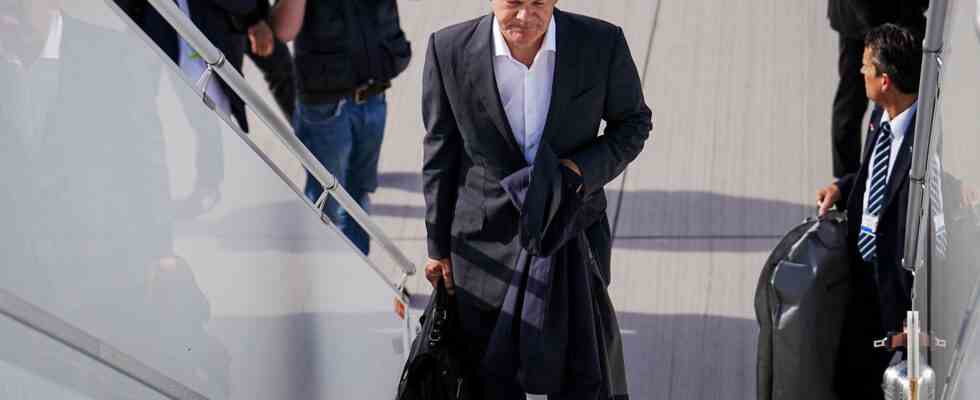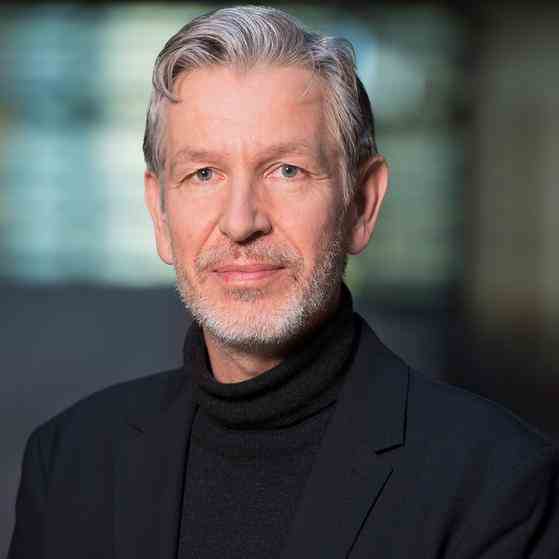Status: 09/24/2022 04:17 am
Chancellor Scholz travels to the Gulf. There he will visit Saudi Arabia, the United Arab Emirates and Qatar. He has to show a lot of tact, because it’s about gas supplies and human rights.
When Chancellor Olaf Scholz meets the Saudi Arabian Crown Prince Mohammed bin Salman today, he needs one thing first: a lot of diplomatic skills. Because the Crown Prince, MBS his acronym, was internationally isolated for a long time. Mohammed bin Salman is believed to have ordered the murder of journalist Jamal Khashoggi in the Saudi consulate in Istanbul in October 2018.
“The murder will certainly play a role in the talks,” said government spokesman Steffen Hebestreit in the run-up to the trip. Which ones, he doesn’t dare to guess at the moment.
Expert: Sanctions are always half-hearted
The political isolation of MBS did not last long internationally, as Saudi Arabia is too important as an energy supplier and economic power. In December, French President Emmanuel Macron traveled there, then the then British Prime Minister Boris Johnson, most recently US President Joe Biden – and now Chancellor Scholz.
Guido Steinberg from the German Science and Politics Foundation said some time ago that Western boycotts and sanctions against the country are always rather half-hearted. “Saudi Arabia has learned that the West needs the kingdom and that such executions don’t do any harm in the long term,” says Steinberg.
The goal is energy partnerships
The energy crisis is forcing us to be pragmatic, it seems. And so the dominant topic is: energy security and how the Arab countries can help Germany, far removed from discussions about human rights. Although Economics Minister Robert Habeck keeps promising that the gas storage facilities are just about full enough to get through this year’s winter, there is great pressure that Germany has to conclude many energy partnerships quickly.
So this is how the Chancellor is talking to Saudi Arabia, the country that only bought Russian oil on a large scale in July, although it produces enough oil itself. But Russian oil was cheap, so the country used the imported oil to generate electricity, making it easier to sell its own oil.
The chancellor as a door opener
Saudi Arabia wants to produce even more oil and gas in the future and invest heavily in hydrogen projects. The goal of the Gulf state: to become the world’s largest hydrogen producer. The federal government now wants to benefit from this and it is not without reason that the Ministry of Economic Affairs opened an office there for “hydrogen diplomacy” in February.
So Scholz will have to do the balancing act at his first station – between diplomacy and business acumen. All in the spirit of the top-class business delegation that is accompanying him – and wants to do business in all three countries. The chancellor is a door opener.
Look for more LPG
Even when Scholz arrives in the United Arab Emirates a few hours later, the topic of conversation is set: LPG transactions. Economics Minister Habeck had previously opened the doors for Scholz there and had to bow to the heads of government. “Energy partnerships are politics,” said Habeck. “And if they’re on renewable energies, they’re more of a contribution to the policy of detente.”
And so Economics Minister Habeck announced before the Scholz trip that the Chancellor would certainly sign some contracts for liquid gas in the United Arab Emirates. So the expectation is high that it will happen.
Qatar insists on long-term supply contracts
The second largest exporter of liquid gas in the world is Qatar, the third stop on the Scholz trip. Berlin wants gas. “It’s great that I can say that we want to enter into a long-term energy partnership,” said Economics Minister Habeck when he was in Qatar in March. Now Scholz wants results – and so does the large business delegation.
However, Qatar wants long-term supply contracts, 20 years or even more. Berlin only wants gas as a bridge to renewable energies. So far there has been no gas from Qatar. But in general, with regard to the golf trip, government circles say: We will bring ambitious proposals to a conclusion. This means that the chancellor will probably not come back to Berlin without a solution for more energy security.


